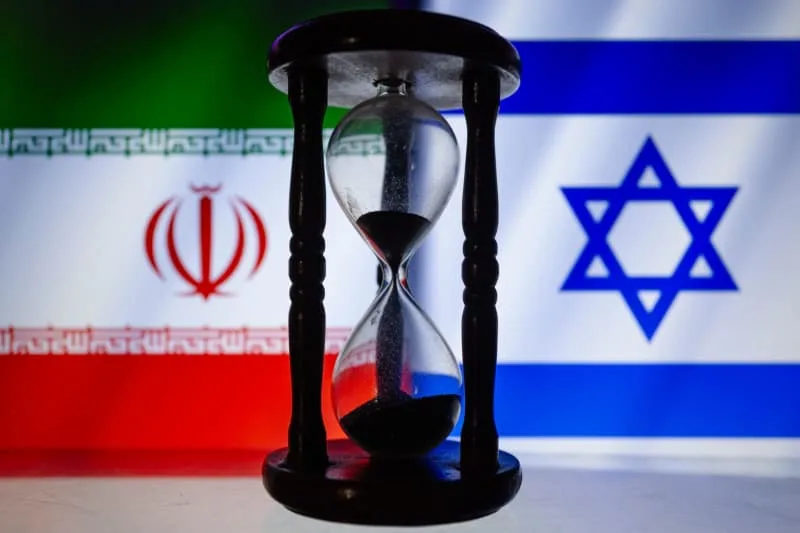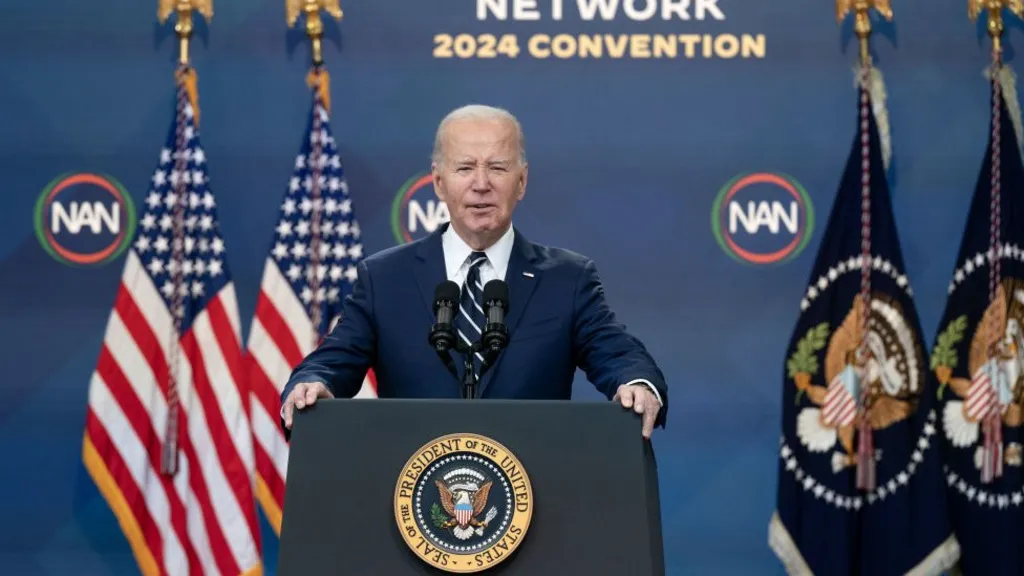As concerns regarding Iranian reprisal following an airstrike that killed top commanders earlier this month rise, US President Joe Biden says he expects Iran to attack Israel “sooner rather than later”.
Although Israel has not acknowledged being the cause of the attack on the Iranian consulate in Syria, it is generally accepted.
US authorities have hinted at an impending big attack on Israel to CBS News, the US partner of the BBC.
Israel declares itself prepared for self-defense. Iran heard Mr. Biden say, “Don’t.”
“We are committed to defending Israel. We’ll back Israel,” stated Mr. Biden. “We will help defend Israel and Iran will not succeed.”
Iran supports a number of proxy organizations in the region, including ones that regularly launch attacks against the Israelis, including Hezbollah in Lebanon, and Hamas, the Palestinian organization that is at war with Israel in Gaza.
Hezbollah declared on Friday that it has fired “dozens” of missiles in the direction of Israel from Lebanon. A representative for the Israel Defense Forces (IDF) reported that two explosive drones and about 40 missiles had been launched. There were no reports of casualties, and there was no evidence of other actors getting involved.
The onslaught was unrelated to any anticipated Iranian attack on Israel, a US official told CBS.
Iran, according to Security Correspondent Frank Gardner, is purposefully keeping Washington and the Middle East in the dark.
Iran’s security establishment has been considering its response to the deadly attack on the embassy building in Damascus on April 1. Israel believes that Iran was using this strike to route its clandestine arms deliveries to Iranian proxies in Lebanon and Syria.
All of this has to do with calibrating. Israel will retaliate with catastrophic force if you hit it too hard. If you tread too softly, Iran could be perceived as helpless and weak. Tactically speaking, Iran has no reason to react at this time, with the area under high alert and the US having warned the world of what to anticipate.
While hawks, led by the aging Supreme Leader Ayatollah Khamenei, will be calling for a forceful response, pragmatics in Tehran and Qom will be advocating for moderation.
However, neither Iran nor its neighbors on the Arab side of the Gulf desire a full-scale conflict. Iranian governments have already been asked to exercise caution. Our correspondent asks whether the doves or the hawks will win out at this point.
-
How might Iran try to harm Israel following the death of the general?
-
Why are Hamas and Israel at war in Gaza?

Several nations have issued travel advisories against Israel due to the escalating tensions, including the US, UK, India, and Australia. Germany demanded that its people leave Iran.
Additionally, the US State Department prohibited diplomatic personnel and their families from leaving Tel Aviv, Jerusalem, and Beersheba.
Amidst the warnings, Israeli Prime Minister Benjamin Netanyahu held meetings with members of his war cabinet.
A few Israelis expressed their lack of concern regarding a possible Iranian attack.
“We are aware that adversaries surround us from all directions—the south, north, east, and west,” Daniel Kosman stated to the AFP news agency while at a Jerusalem market. “I assure you that we are not afraid. Take note of the folks leaving.
The Israeli government has not given its citizens any additional advise beyond the current directive to stockpile water, food for three days, and necessary medications.
However, according to Israeli radio, local officials were instructed to get ready for any strike, including evaluating how well-stocked public shelters were.
The Israeli military strengthened air defenses, activated reservists, and canceled combat personnel’ home leave last week.
In the missile attack on the Iranian consulate in Damascus on April 1, thirteen persons lost their lives.
Senior Iranian military figures were there, including Brig Gen. Mohammad Reza Zahedi, who is in charge of Iran’s special Quds Force in Syria and Lebanon.
A number of nations’ officials have been attempting to talk Iran out of attacking because they are concerned that it would start a larger regional conflict.
In an effort to persuade them to use their clout with Iran, US Secretary of State Antony Blinken has spoken with the foreign ministers of China, Saudi Arabia, and Turkey.
The threat, according to Israeli Defense Minister Yoav Gallant, has reinforced ties between the two nations, and “we will know how to respond,” he said after meeting with the US Central Command commander on Friday.
Hamas attacked Israeli communities close to the Gaza Strip, killing around 1,200 people—most of them civilians—and kidnapping over 250 more. This attack served as the impetus for the Gaza War. According to Israel, at least 34 of the 130 hostages who are still in Gaza are dead.
The health ministry headed by Hamas reports that around 33,600 Gazans, mostly civilians, have died as a result of Israel’s campaign in the Gaza Strip.
Israel and Hezbollah exchange gunfire across Israel’s northern border on a near-daily basis, while Iranian-backed forces have attempted to strike US positions in Iraq and Syria as well as Israeli land.
The Houthi movement in Yemen has also targeted Red Sea ships, sinking at least one vessel and leading the United States and the United Kingdom to launch airstrikes against Houthi targets in Yemen.
https://youtu.be/f5GLqHn5uAE?si=vJ9iGkWDMhAoFlhX
FAQs
What proof does Biden have that Iran is planning an attack on Israel?
Although particular facts may not have been made public, intelligence assessments and continuous observation of regional trends are most likely the source of Biden’s statement.
In the event that Israel is attacked by Iran, how could other nations react?
Reactions would differ based on the affiliations and strategic interests of each nation. To prevent things from getting worse, some countries might lend diplomatic assistance to Israel, while others might denounce the aggression or take a neutral stance.
What actions can be done to reduce the level of stress in the area?
De-escalating hostilities and promoting stability in the area require diplomatic initiatives, communication, and international discussions. In addition, resolving underlying grievances and advocating for confidence-building initiatives might help reduce the likelihood of conflict.


1 thought on “JOE BIDEN EXPECTS IRAN TO ATTACK ISRAEL ‘SOONER THAN LATER’”